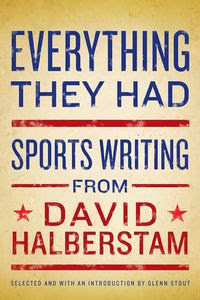
Yesterday the Calgary Stampeders won the 96th Grey Cup from the Montreal Alouettes in Montreal in front of 66,308 screaming fans. It was the second largest Grey Cup crowd in the championship's historic existence.
I was having a nap.
The Stamps had something of a vendetta against the Als - - they had been slighted by the CFL when they received no awards, while the Als had been met with critical acclaim. Although the Stamps' QB Henry Burris had had a career season, the Als' Anthony Calvillo was given the nod for Most Valuable Player in the CFL's regular season. The Stamps played with a passion rarely seen in any sport.
Or so I'm told. I was watching Charlie Wilson's War.
As you can tell, the CFL just does not appeal to me. A shocking but true fact as I am their ideal target audience. After all, I'm a middle class male between the ages of 18 and 45. Everyone wants my attention. If I may be so bold: I am the perfect CFL demographic. I love sports. I love football. I love Canada. I'm an ardent fan of all things Torontonian, and would naturally become a hardline fan of the Argos.
But the CFL just doesn't stick with me.
I absolutely love Canadian football, at least on paper. I think the game and rules of the CFL are far superior to the American game with higher scores. The three downs emphasize efficiency and speed, while the bigger field lets individual players shine. Unfortunately, most of the best football players in the world play in the NFL or NCAA. The cream of the crop in the CFL are always in danger of being scooped up by an NFL team for more money.
What immediately ruins the CFL for me are the television broadcasts. The production values are so low, and in particular, the commentators are so bad, that it is almost impossible to watch. On TSN's SportsCentre, the CFL analysts were interviewing a jubilant Henry Burris who was holding the Grey Cup at the table. Former CFL Quarterback and current grillmaster Matt Dunigan asked him how he felt after winning the championship and the Grey Cup MVP trophy. Seriously. Do we expect anything other then happiness from Burris? Is he going to break down into tears and apologize for an interception earlier in the game? Come on. He's won the championship, the MVP, and has a huge grin plastered on his face. Ask a tougher question.
The CFL has to operate on the assumption that there is little familiarity with the game, its players, and even its teams. At the same time, they have to make sure they do not condescend to the fans. I appreciate it's a fine line to walk, but it's a reality of sports today that all fans will become familiar with their product on television. If your television product isn't informative, entertaining and polished, people will flip the channel to something that is. The CFL is admittedly up against some tough competition in the form of America's National Football League which is as slick as it comes, but Chris Schultz meathead-esque explanations of plays can surely be refined.
The CFL has to operate on the assumption that there is little familiarity with the game, its players, and even its teams. At the same time, they have to make sure they do not condescend to the fans. I appreciate it's a fine line to walk, but it's a reality of sports today that all fans will become familiar with their product on television. If your television product isn't informative, entertaining and polished, people will flip the channel to something that is. The CFL is admittedly up against some tough competition in the form of America's National Football League which is as slick as it comes, but Chris Schultz meathead-esque explanations of plays can surely be refined.


